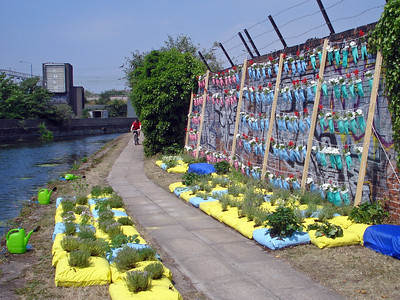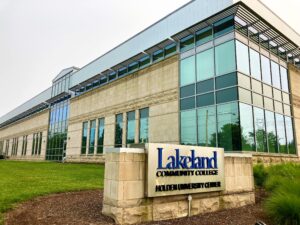Last month, I wrote about urban farming and the potential benefits it offers to areas that lack access to fresh produce. Vertical farms (or freight farms) can produce crops year-round, and rapid yields. Other benefits include a significant reduction in the amount of water required to produce crops. Better still, vertical farms are expected to employ more than 100,000 people in the next 10 years. (That’s 2,000 people per state.)
Not only do vertical farms offer the opportunity for employment, they also offer tremendous local business opportunities in urban areas to provide year-round fresh produce for households and restaurants. There is a real need for ventures like this in cities, and it represents an opportunity for urban community colleges to get in on the ground floor of a growing economic sector. Right now, urban agriculture generates about $160B annually, and this is expected to grow substantially in the next decade.
Urban farming programs (whether or not they incorporate vertical farms) have a place in community college catalogs. Even when an urban farm follows a seasonal-only calendar and uses traditional soil-based growing, it makes a valuable community contribution.
Indoor urban farming has other distinct advantages over traditional farming operations: the produce is -by definition – organic; they can produce crops from seed to harvest in as little as 30 days; they use 70% less water than traditional farming; crops are not subject to damage by pests; and urban farms are not impacted by flooding, hail, drought, wind and other catastrophic weather events. That makes urban farming a consistently reliable source of high-quality fresh food.
Urban farming has multiple applications
Right now, nearly 39% of Washtenaw County is considered agricultural. Despite this, WCC has never attempted any agriculture-related programs. Agriculture and Food Science employment will grow by 8% through 2030, which is faster than average. As either a STEM program or a business program, graduates would be in high demand.
This is exactly the kind of new program that would attract students. Urban farming relies on hydroponics to produce high-yield crops quickly. An urban farming program would have other side benefits. For people who want cultivate marijuana, hydroponic farming may be highly desirable. Another possible venture may include starting a seedling business, which would grow ready-to-plant flowers and vegetables for traditional gardeners in the spring.
WCC needs to invest in developing new programs that will enable residents to learn valuable new skills and make meaningful contributions to the changing economy.
Photo Credit: diamond geezer , via Flickr















